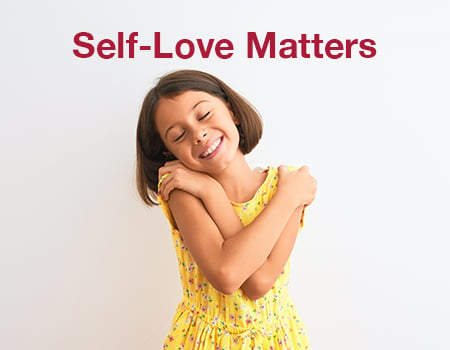Pursuit of happiness is of global proportions. Everywhere you turn, or even if you do not, there is the promise of yet another way to reach happiness. Yet, when you try to get there, the prize feels perpetually distant.
What is happiness?
Happiness is a state of being in the world that encompasses every part of life regardless of specific situations, circumstances, or events. You feel like you are living the life you want to live. There is a sense of personal resilience whether you are facing pleasant conditions or demanding issues. A few other words to define happiness are gladness, contentment, satisfaction, joy, peace, serenity, delight, pleasure, and cheerfulness. While possessions and achievements can bring a temporary emotional boost, long-lasting happiness is more fluid and nuanced. And, it turns out, more gradual
Where does happiness come from?
Genetics, intentional practices, and circumstances all influence how you process your life. Neither an event nor a destination, happiness is very much a decision, a journey, and a manner of living. Happiness is more within your control than you may realize. Research suggests happiness is fifty percent genetic, forty percent intentional activity, and ten percent experiences and circumstances. So, if one is born with happiness gold in their veins, is living in joy easier than for someone who has negativity in their DNA? Not necessarily. This is where your forty percent comes in. Your overall attitude toward life and the world contributes to your well-being. How much self-compassion do you give yourself? What messages from others must you overcome? How do other external messages speak to you? Surprisingly, people with income levels above $100,000 are not happier than those whose income is $70,000. As goals are achieved, there is a natural adaptation to the new level, so, it no longer feels like an achievement. Then, pursuit of a higher level may ensue. There is nothing wrong with pursuing ever-higher accomplishments. The key is your attitude toward the old goal once it is reached. Counterintuitive though it seems, happiness goals are more attainable when they are ambiguous rather than specific and measurable.
Behaviors and mental processes; symptoms
What traits and behaviors indicate the presence of a happy person? Happy individuals demonstrate compassion, generosity of time, energy, and resources as well as healthy boundaries and self-care.
They pursue goals that feed personal growth, honor the present moment, and think of negative thoughts differently. When happy persons encounter tough emotions, they express them in healthy, appropriate ways that respect everyone involved. They may or may not always see every situation in a positive light, but in a realistic light. Their emotions are balanced and accurate.
Ways to address it
Several life practices can help you on your path of happiness: building strong relationships and support systems; regular exercise, as little as ten minutes daily; expressing appreciation for people and life circumstances; and a life purpose. Join a group designed to help others. Reach out to people you trust for mutual assistance. Walk indoors or outdoors, beginning with five minutes at a time. Notice kindness when someone is gracious towards you and pay it forward.
Some areas to think about as you practice and hone your happiness skills include perfectionism, comparing yourself and your life to the lives of others, possessions in all forms, and exaggerating, which all are related to each other. Trying to attain perfectionism in any part of life by comparing yourself and your circumstances to others can backfire. The perfect physical features, the perfect job, the perfect child’s toy are perfect because someone else decides they are. These attributes and possessions change with the latest development or version. Keeping up is impossible, which leads to frustration with yourself and your life. The truth is that most people feel inadequate at some point in their lives and the goals of the ads are to tap into those mind springs of self-doubt and fear of not measuring up. Exaggerating is a form of perfectionism in which you continue to strive for the “best” or the “most” even when a satisfactory level of accomplishment has been attained.
Open your journal to a blank page for some mind-heart-body work to hep you smile.
You are going to:
- Create a bucket list of what will bring you contentment and deep satisfaction.
- Write with your focus on personal development and experiences rather than “things.”
- As you write, think of the ways the item on your list will enhance your life and write a brief description.
- Try to avoid SMART goals which can stifle happiness goals.
- After each item, put down your pen or remove your fingers from your keyboard.
- Take a deep breath, close your eyes, and imagine the satisfaction the goal will bring into your life.
- Smile. Take another deep breath. Slowly open your eyes.
- Write one to three small activities you can do at this moment to begin moving toward your goal.
- Move on to the next goal and repeat.
- Put your list in a handy location so you can refer to it often and modify it.
Conclusion/takeaway
Life is comprised of spectacular achievement and crushing disappointment. Minute by minute, Life is a tangle of small, almost imperceptible moments that evoke smiles and frowns. How you interpret and process each of these experiences adds to or subtracts from your Happiness Pot. The ultimate goal is to feel a warm sense of satisfaction and contentment most of the time. You live life feeling happy most of the time. Happiness is not a state of unbridled giddiness. Long term, this kind of happiness is not sustainable. Happiness as a state of intense pleasure is what the ads promise and the goal of most people. But it is too short-lived to bring about a life of contented balance. You wind up living life in a series of extreme highs and lows, bringing on unhealthy distress.
Happiness is truly a mind/body expression of how you interpret your life and the world. You live with authenticity which means you experience the gamut of human emotions—gladness, serenity, anger, frustration, loneliness, sadness, fear, self-doubt, anxiety, depression, tiredness—and you express them in ways that support your emotional state while respecting others. So, let your body feel your happy emotions as well as your sad ones. Celebrate the good times and good things in your life. Keep your journal handy.

Author bio: Billie Wade is a writer living in central Iowa. She is the creator and founder of Journaling to Heal, a program she designed to help people as they travel their journey of healing from emotional stress and trauma. Her background, education, and experience enhance her innate compassion and reverence for other human beings. She shares her strength and wisdom on www.journalingtoheal.com.
Billie Wade is a writer living in central Iowa. She is the creator and founder of Journaling to Heal, a program she designed to help people as they travel their journey of healing from emotional stress and trauma. Her background, education, and experience enhance her innate compassion and reverence for other human beings. She shares her strength and wisdom on www.journalingtoheal.com.
Contact her at billie@journalingtoheal.com



Leave Comment